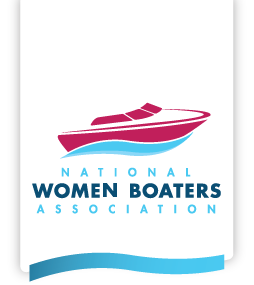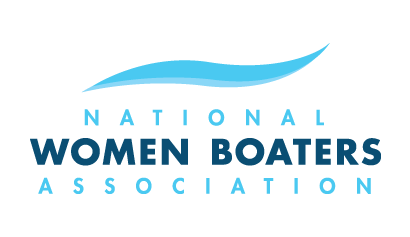
We asked Megan Straw-Meisler from Loadmaster Trailer Company and regular contributor to Great Lakes Scuttlebutt magazine a few key questions about trailers. Here’s her take:
Does a trailer need to be “winterized”? There are always maintenance and safety checks that should be done on every boat trailer, but not just once a year. We recommend to all of our customers that they do thorough inspections in the spring and fall. Throughout the year, you’ll always want to do the basics of checking the lug nuts, tire pressure, grease, and tightening all necessary fittings. Each trailer should come with a maintenance manual with a recommended schedule to help guide you through the process. Most boat trailers should come equipped with radial tires. Inflate them to their maximum tire pressure at the rated cold inflation. The lug nuts should be checked frequently and torqued to the require standards, which can vary. There are different bearing systems available on boat trailers. Loadmaster trailers use a Safe T Lube system, with a grease zerk fitting (this is where the grease gun hooks up). Many trailers still use bearing buddies, while others are using the oil bath. So greasing your bearings will vary depending on the system you have on your trailer.
What kinds of maintenance will prolong the life of a trailer? Above and beyond the basics of lug nuts, tire pressure and grease, there are practices you can do to prolong the life of the trailer. First, if you store your trailer outdoors, covering the tires to protect them from sunlight is always a good idea. No matter the construction of your trailer, if you use it in salt water, it’s always a good idea to hose your trailer and its’ fittings down. Storing a painted trailer indoors is always good to prolong the life of the paint from fading. If your trailer has surge or what some people call, hydraulic, brakes, when you park your trailer into a parking spot, always remember to pull forward slightly to dis-engage the master cylinder from pumping the brake fluid back to the axles. Proper maintenance is the best thing you can do to keep your trailer long lasting, and safe. One thing to remember; if your trailer is built out of tube or box steel, there is no way to prime or paint the inside of the frame so it can rust from the inside out. So, over time, be sure to check against internal rusting issues to prevent any serious damage.
How do you pick the right trailer for your boat? This is a tricky question because we are unique in that we build every Loadmaster trailer to order making sure the customer has the correct trailer. That is also why we do not have many dealers. There are a few pointers to always look for when buying a trailer, however, whether new, old, built to order or stock. Always make sure the trailer is rated to carry the loaded weight of your boat plus a few hundred pounds more. From a trailer’s GVWR (Gross Vehicle Weight Rating) you have to subtract the trailer weight to get actual Payload Capacity (this is what weight boat that trailer can tow). Secondly, you want the entire hull of your boat to be accurately supported. Third, be sure the bunks or rollers (the supports for the hull) are set properly. Check with your state to make sure the trailer has a braking system that is legal. Some states do not allow surge brakes on boat trailers.
What’s exciting about the trailer industry right now? The boat trailer industry is always changing due to the fluctuations in the economy. The important thing is to be able to grow with the times and to meet consumers’ needs and keep up with new products that could be used on our trailers. For example, we do quite a bit of government contracting, and the last few years have been asked to build truly unique trailers. We built a trailer this year for a fire station so they could load their air boat on the trailer backwards! We have learned to build stack trailers so customers can have one boat on top of the other, where the top hydraulically lowers down to float on and off. To make it in the industry, a lot of us are going to have to keep evolving, bottom line.
Are there any special considerations that women should make when buying a trailer? Yes! I get asked this frequently. The worst feeling is being at a launching ramp and feeling rushed and feeling like all eyes are on you. That’s stressful whether you are male or female. Having a properly fitting trailer that is well built can alleviate so much of this stress, allowing you to easily load your boat on and off the trailer. If you are ever having a rough day, go to a boat ramp and watch people struggle putting their boat on a trailer that is clearly wrong for their boat, it creates nothing but headache. There are a few options that can ease the stress of loading your boat on the trailer: a power winch, power tongue jack and side guides to name a few. As women, we want to be sure, first and foremost, we are safe.
Other Maintenance Articles: Isinglass: What is it and how to maintain it? Spring has Sprung: What you need to get your boat ready


